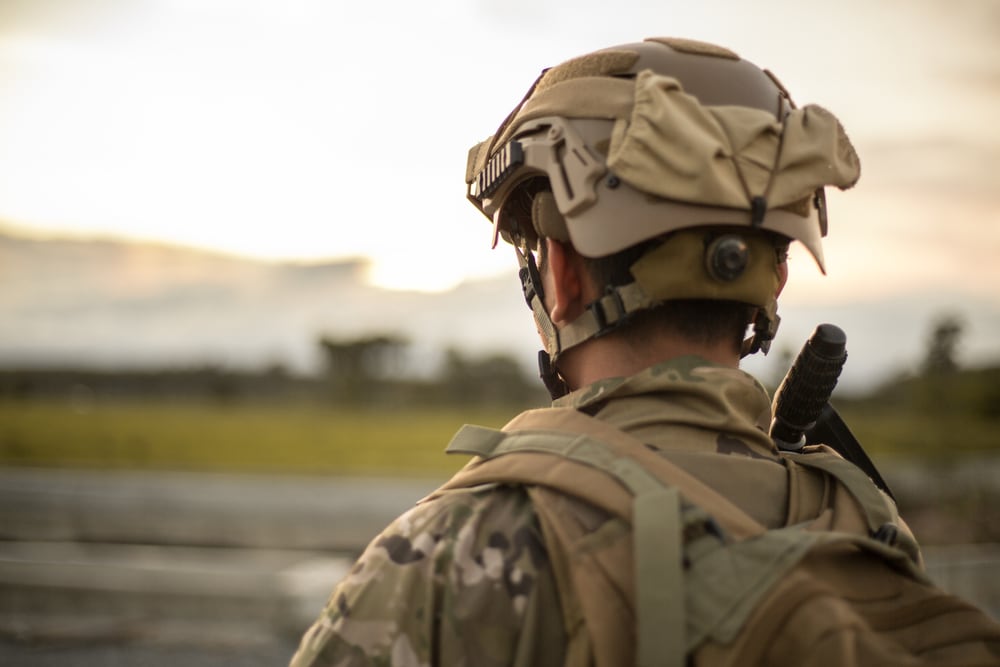Policing in an age of empty streets
Everything around us seems different these days. The streets are empty while businesses and restaurants are closed. In this strange new world, how should policing change so cities and states can address the public health crisis across the nation? Faced with the threat of the coronavirus, the reaction of many departments will undoubtedly be greater force to clear the streets, maintain public order, and patrol potential hotspots like stores and hospitals. But during these unprecedented times, a different response might be more in tune with what our communities need today. Police have to exercise clear professional judgment and understand that not every challenge is a nail in need of a vigorous hammering.
First, police need to take their own health seriously. New York City already sent officers home because of suspected exposure, and one precinct had nearly 20 percent of officers out sick this week. Police must keep cruisers and work spaces clean, and follow the advice of public health authorities. Exposure to infected persons is likely inevitable, but departments need to develop new procedures that will limit the danger of infection and spread among their ranks. Police also need access to protective gear as soon as it is available, second in line only to health care workers. Coronavirus cases among officers could have serious public safety implications.
Second, nothing should get in the way of the central mission of ensuring public safety and maintaining public order. In a situation where citizens are fearful and on edge, there is always the danger of disturbances that could have a negative cascading effect. Police must respond to conduct that poses an imminent threat to public safety. There is no need for police state measures, but officers should be attentive to conduct, especially at stores or hospitals, that could snowball into such disturbances.
Over the next few weeks and perhaps months, the notion of public safety must flex to encompass acts and measures that respond to the threat of infection in unusual ways. Within reason, police should be ready to assist public health officials and pitch in to fill the many gaps that will inevitably appear in providing critical human services. Assisting elderly people with distribution of aid is one example. Assisting children who have lost their lifeline to daily meals through school shutdowns is another.
The “lock them up” response to potentially criminal conduct needs to be balanced against the fact that jails and prisons are agents of the disease spread. That does not just affect people behind bars, but we should be concerned about the incarcerated for their own sake, because whatever crimes they may have committed, they are still human beings who need attention. Mass incarceration is also dangerous to the larger community, since jails and prisons are not completely controlled environments, with guards, inmates, and volunteers cycling in and out of these institutions every day and then dispersing among the general public.
Indeed, the possibility that jails and prisons will become vectors for the spread of the coronavirus to the general public has caused some judges, sheriffs, and prosecutors to start releasing at risk, elderly, and nonviolent inmates. In Cleveland, for instance, local judges have banded together to release hundreds of inmates from the deeply troubled Cuyahoga County jail, which is one of the worst in the nation. Expect to see more of this as the inevitable jail and prison outbreaks start to accelerate.
Police should respond to the cues these officials are sending. Creating a situation where jails and prisons become hotbeds of the coronavirus will endanger the lives of officers and other employees. It will risk spreading the disease back to the communities they live in. Even before this crisis, officers had lots of discretion, especially on low level offenses. They must employ that discretion now, using “cite and release” measures, especially on public order offenses like jumping subway turnstiles or shoplifting. In the balance of priorities, protecting everyone from the spread of disease by limiting jail and prison populations is more important now.
This kind of policing requires a lot of judgment from officers. The nation now confronts one of the underappreciated casualties from the tough on crime era, which is emotional intelligence in law enforcement. When the response to nearly every potential criminal act is the same process, then officers are absolved of the necessity of exercising sound judgment and of developing the important knack for distinguishing the serious from the trivial. Such emotional intelligence withers when it is unused.
But there is no skill more critical to maintaining relations between people and police. People trust police when they believe police understand the complexity of social relations, and that the response will be appropriate, which sometimes means not bringing down the hammer. In the coming weeks, as public safety factors evolve and mass incarceration becomes more dangerous to us all, it is likely that police will need to call on their emotional intelligence and learn when to let the little stuff go.









